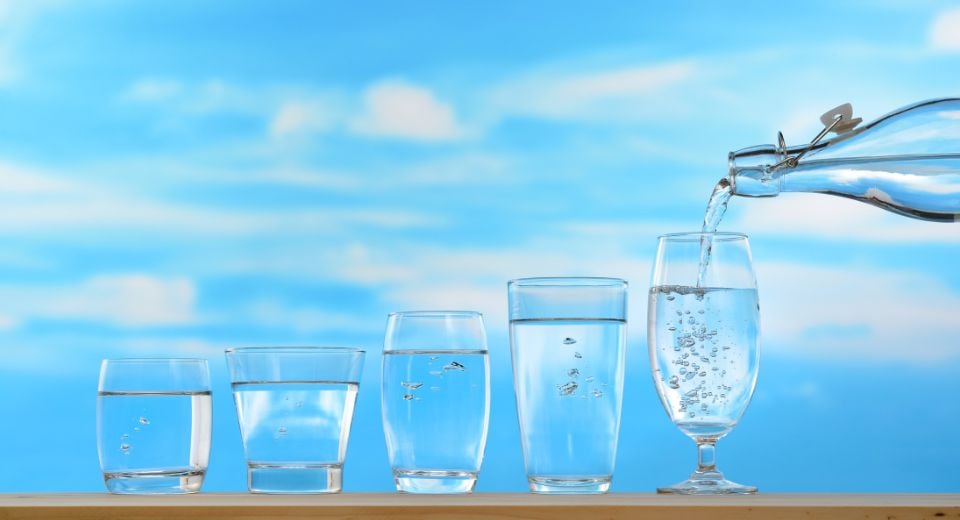
Author: Ryan Pham, PA-C
It’s common to know that staying hydrated and drinking water is good for your health. But too much of it can lead to water intoxication.
What causes water toxication?
When you drink too much water, it can cause hyponatremia, which happens when your blood sodium concentration becomes very low. It also occurs when excessive water intake disrupts the body’s balance of electrolytes, setting in motion a chain reaction that can be fatal.
When the blood’s sodium concentration drops, water rushes into the cells in an attempt to balance the body’s fluid levels and then expands (swells). It’s not life-threatening if cells swell, even in the heart, but because the cells in the brain swell, it forces compression on the base of the brain where the vital centers are. People who experience water intoxication ultimately die of brain swelling (acute cerebral edema).
What are the symptoms of water toxicity?
Symptoms of water intoxication tend to start appearing after you consume more than 3 to 4 liters of water in a few hours.
Potential symptoms include:
- Head pain
- Cramping, spasms, or weakness in your muscles
- Nausea or vomiting
- Drowsiness and fatigue
In more severe cases, water intoxication can also cause seizures or loss of consciousness. If a person doesn’t receive treatment, water intoxication can be fatal. Note that water intoxication symptoms are very similar to those of dehydration. If you aren’t sure which one you’re experiencing, get immediate help. Avoid drinking or withholding water until you confirm the underlying cause of your symptoms.
Is water toxicity preventable?
Generally, it’s best to stick with drinking water at the first feeling of thirst. Once you feel quenched, hold off until you start to feel thirsty again.
Your urine color can also be a helpful indicator. Clear urine may be a sign that you’re at risk of overdoing it. On its own, clear urine isn’t necessarily bad, but it’s a good indicator that you don’t need to drink any water for a while.
If you’re about to do an intense workout, consider hydrating with an electrolyte drink that contains sodium, such as a sports drink.
While it is possible to have fatal complications from drinking too much water, it’s rare. You have to drink a lot of water in a short amount of time, which most people will have a hard time doing accidentally. But if you’re an endurance athlete or do a lot of strenuous physical activity, you could have a higher risk. In these cases, you can usually look at your urine color and thirst level to tell you whether you really need to be drinking extra water.
If you’re concerned about your water intake, talk to your healthcare provider. They can give you more specific recommendations based on your overall health, size, and other factors.
The information provided is for general interest only and should not be misconstrued as a diagnosis, prognosis or treatment recommendation. This information does not in any way constitute the practice of medicine, or any other health care profession. Readers are directed to consult their health care provider regarding their specific health situation. Marque Medical is not liable for any action taken by a reader based upon this information.

